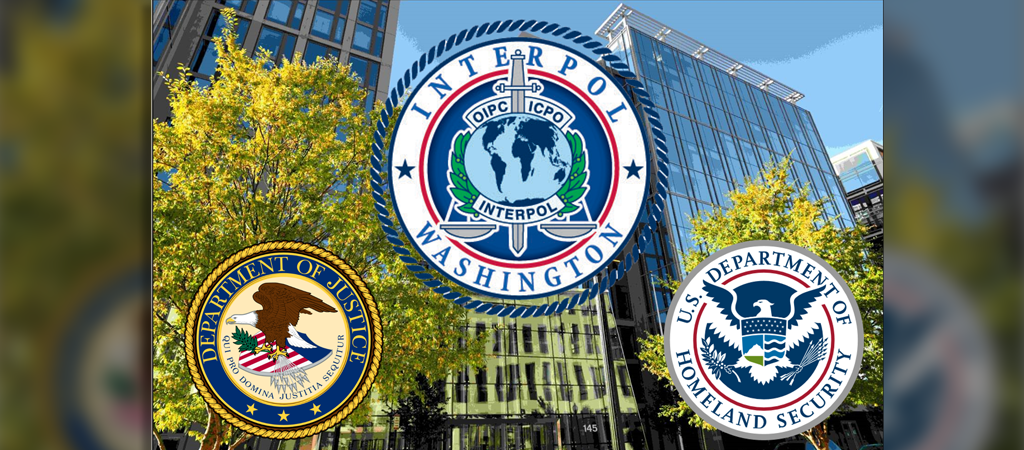About INTERPOL Washington
HISTORY
INTERPOL Washington is the United States National Central Bureau (USNCB) and designated U.S. representative to the International Criminal Police Organization (INTERPOL) on behalf of the Attorney General, pursuant to statute and regulation (see 22 U.S.C 263a and CFR Title 28 Subpart F-2 § 0.34). Established in 1969 as a component of the Department of the Treasury, the USNCB was co-managed by DOJ under an MOU entered into under Attorney General John N. Mitchell. In 1981, an amendment to the MOU made under Attorney General William French Smith established the USNCB as a component within DOJ, where it continued to be co-managed by Treasury. In 2003, an amendment to the MOU made under Attorney General John Ashcroft replaced Treasury with the newly established Department of Homeland Security.
MISSION
The mission of the USNCB is to facilitate international police cooperation as the United States representative to INTERPOL and to serve as the primary nexus for sharing criminal justice, humanitarian, and public safety information between United States law enforcement authorities and their international counterparts in 195 other INTERPOL member countries.
MAJOR FUNCTIONS
The major functions of the USNCB are to:
- Facilitate international law enforcement cooperation as the United States representative to INTERPOL on behalf of the Attorney General, pursuant to 22 U.S.C. 263a.
- Transmit information of a criminal justice, humanitarian, or other law enforcement related nature between National Central Bureaus (NCB) of INTERPOL member countries and law enforcement agencies within the United States and abroad, pursuant to CFR Title 28 Subpart F-2 § 0.34.
- Respond to requests for international law enforcement cooperation and assistance submitted by U.S. authorities and their counterparts in other INTERPOL member countries, pursuant to CFR Title 28 Subpart F-2 § 0.34.
- Extend access to I-24/7, INTERPOL’s secure, global police-to-police communications system, to U.S. law enforcement agencies, pursuant to its exclusive information sharing authority under the INTERPOL Constitution and Rules for the Processing of Data.
- Extend query access to INTERPOL’s global criminal investigative information to U.S. law enforcement agencies, and determine the extent of their processing rights, pursuant to its exclusive information sharing authority under the INTERPOL Constitution and Rules for the Processing of Data.
- Obtain the publication of INTERPOL Notices on behalf of all U.S. law enforcement authorities for purposes that include, but are not limited to, locating and apprehending wanted international fugitives; tracing and locating persons of interest in an international criminal investigation; warning law enforcement authorities about persons who pose a serious potential threat to public safety, and locating missing persons, pursuant to its exclusive information sharing authority under the INTERPOL Constitution and Rules for the Processing of Data.
- Upload and maintain U.S. law enforcement data in INTERPOL’s system of investigative and analytical databases and determine the extent of member country access to the information.
- Download INTERPOL Notice and Diffusion data into relevant U.S. indices including the FBI’s National Crime Information Center (NCIC) system, and TECS, U.S. Customs and Border Protection’s proprietary border security screening system.
- Provide expert technical and programmatic assistance to like-minded partner countries seeking to build their capacity to screen against the illicit international travel and activities of transnational criminal and terrorist threat actors and their networks.
- Pay the United States’ annual membership dues obligation to INTERPOL, in accordance with a formula adopted by the Organization’s General Assembly.

 U.S. Department
of Justice
U.S. Department
of Justice

